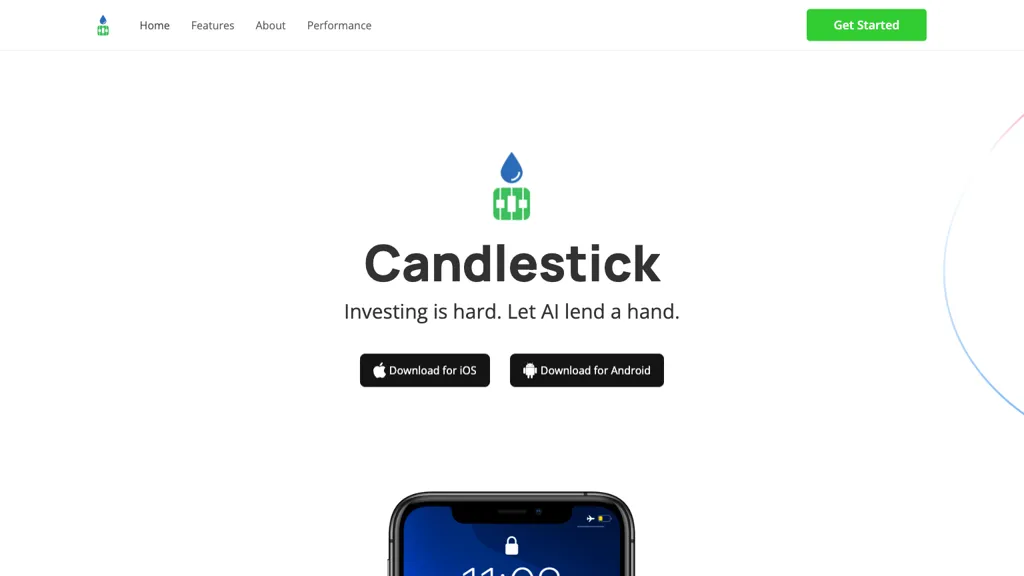20 Top Tips For Choosing AI Stock Trading Websites
20 Top Tips For Choosing AI Stock Trading Websites
Blog Article
Top 10 Tips On Pricing And Costing Of Ai Software For Predicting And Analysing Stocks
In order to get the best value it is essential to evaluate and price AI analysis and stock prediction platforms. Pricing structures can differ widely, and understanding what you're paying for is key to making an informed choice. Here are the top 10 suggestions for evaluating the price and cost of these platforms:
1. Know Pricing Model
Subscription: Make sure to verify if a platform has a fee per year or month and what is included with each tier.
Pay-per-Use: Find out if the platform charges for usage (e.g. the amount of trades completed or data requests, or even predictions).
Freemium: Determine if a platform has an unrestricted free tier or charges extra for premium features.
2. Compare Pricing Tiers
Features breakdown: Check out what features are included in each pricing the tier (e.g. basic, professional, or enterprise).
Scalability: Be sure that the price tiers are aligned to your needs.
Upgrade flexibility: Find out whether you are able to easily change or upgrade your plan when your requirements alter.
3. Evaluate Hidden Costs
Data fees: Check whether there are additional fees for data that is premium (e.g. live data, or advanced analytics).
Brokerage Fees: Determine if your platform charges extra fees for integration or trade execution.
API usage: Check if there are extra costs for API access or for high-frequency API use.
4. Demos and Free Trials
Trial period: Look for platforms that provide the option of a trial or demo to test the features before you decide to sign up.
Check the limitations of a free trial. Does it contain all features?
If you feel that the platform isn't suitable for you, be sure you have the option to cancel the trial.
5. Be sure to check for discounts and promotions.
Discounts for annual subscriptions: Check whether the platform offers discounts for annual subscriptions compared to monthly plans.
Referral programs. Make sure the platform offers discounts or credits for referring users.
Institutional pricing: If you're part of an organization larger than yourself, ask about bulk or institutional pricing.
6. ROI (Return on Investment) How can you assess the return?
Cost and. worth: Determine if the features and forecasts of the platform are worth the price. For instance, will it aid you in making better trading decisions or save time?
Track record of performance: Study the platform's success rate or user reviews to assess the potential return on investment.
Alternative costs: comparing the cost of the platform to the costs that could be incurred if it is not used (e.g. missed opportunities, manual analysis of data time).
Review Refund and Cancellation Policies
Cancellation terms: Ensure you have the option to cancel your subscription with no penalties or hidden fees.
Refund policy: Find out if the platform will refund you for any unused portions.
Auto-renewal: Check that the platform is automatically renewing your subscription, and how you can decide to stop it.
8. Pricing should be transparent
Clare pricing: Make sure that the price of your platform is clearly stated and has no hidden fees.
Support for customers Contact customer support to clarify any unclear pricing details or additional costs.
Terms of service: Read the conditions of service to be aware of any commitments to stay or penalties that are long-term.
9. Compare your competitors
Comparing features and prices between platforms is a great method to ensure you're getting a fair price.
Review by users: Go through user feedback on the platform and determine whether it's worth the cost.
Market positioning: Find out the price of the product, whether it's the high end, mid-range or low-cost option, and if that aligns with what you would expect.
10. Examine the Long-Term Costs
Price increases: Find out if and how often the platform increases its prices.
Feature additions - Determine whether new features are included in your current plan or if a change is needed.
Costs of scaling: Make sure the pricing of your platform is fair, as you increase your trading or data requirements.
Bonus Tips
Free trials for various platforms are available to test and compare the value and performance of different platforms.
Discuss your price. If you're a part of an institution or you're using this product in huge quantities, discuss pricing options that are custom.
You can find free educational tools on various platforms.
Utilize these suggestions to determine the price and cost of AI analysis and stock prediction platforms. Select one that is compatible with your requirements and is with your budget. The price of a good platform must be able balance cost-effectiveness with the features. This will help you get the most out of your trading. Take a look at the top rated helpful hints for AI stock trading for blog tips including best ai trading software, ai investing app, best ai for trading, AI stocks, ai for stock predictions, chart ai trading assistant, ai investing app, ai trading tools, AI stock picker, ai investing platform and more.
Top 10 Tips For Evaluating The Regulatory Conformity Of Ai Stock Predicting/Analyzing Trading Platforms
When looking at AI trading platforms, regulatory compliance is critical. Compliance ensures that the platform complies to financial regulations and adheres to legal frameworks and safeguarding user data. This lowers the possibility of financial penalties or legal problems. Here are the top 10 suggestions to evaluate the compliance with regulations of these platforms:
1. Verify Licensing and Registration
Regulatory bodies: Ensure your platform is registered and regulated by the relevant financial regulatory bodies (e.g., SEC in the U.S., FCA in the UK, ASIC in Australia).
Broker partnerships: If a platform is integrated with brokers, make sure that brokers are properly licensed and regulated.
Public records: Visit the website of the regulator to determine if the platform has been registered or has ever violated the law.
2. Take Data Privacy Measures Compliance
GDPR - If your platform is located in the EU or serves users from the EU make sure that it complies with GDPR.
CCPA for Californians Check compliance with California Consumer Privacy Act.
Data handling policies: Go through the policy on data privacy of the platform to ensure it outlines the methods by which data from users are collected as well as how it is stored and transferred.
3. Evaluation of Anti-Money-Laundering Measures
AML policies: Make sure the platform has robust AML policies in place to stop and identify the laundering of money.
KYC procedures: Check whether the platform is using Know Your Customer (KYC), which verifies user identities.
Monitoring transactions: Find out if the platform is able of monitoring transactions and reporting any suspicious transactions to relevant authorities.
4. Check the compliance of your business with Trading Regulations
Market manipulation: Ensure that the platform is armed with measures to prevent market manipulation, such as washing trading or fake trading.
Order types. Check to see whether your platform meets the regulations for orders.
Best execution: Make sure that the platform adheres to the best execution methods to ensure trades are executed at the highest price.
5. Cybersecurity Compliance:
Data encryption: Ensure the platform uses encryption to protect user data in transit and at rest.
Response to incidents: Verify if the platform has a clearly defined incident response plan in case of data breaches or cyberattacks.
Certifications - Find out whether your platform is certified. cybersecurity certifications.
6. Review Transparency and Transparency
Fee disclosure. Be sure that all fees and charges are clearly stated, as well as any hidden charges or fees.
Risk disclosure: Ensure that the platform discloses all risks, especially in the case of high-risk strategies, or trading using leverage.
Performance reporting: Ensure the AI platform is transparent and provides precise performance data for its AI model.
7. Check for conformity with international regulations.
International trading: If you are trading internationally, make sure that the platform is compliant to all laws and regulations.
Tax reporting: Find out the platform's tools or reports to allow users to follow tax regulations.
Compliance with sanctions: Verify that the platform adheres and does NOT allow dealings or transactions with banned entities or countries.
8. Assess record-keeping and audit trails
Transaction records: To meet regulatory and auditing purposes, ensure that the platform keeps complete records of all transactions.
User activity logs - Make sure that the platform records all user activity, including transactions executed as well as any changes made to the account settings.
Audit readiness: Make sure that the platform can provide necessary documentation and logs in case of a regulatory audit.
9. Verify whether you are in compliance with AI Specific Regulations
Algorithmic trading rules: If a platform supports algorithmic trading, ensure it's in compliance with regulations such as MiFID II in Europe or Reg SCI in the U.S.
Fairness and bias Determine whether the platform modifies or monitors its AI models for ethical and fair trading.
Explainability: Ensure that the platform provides clear explanations for AI-driven predictions and decisions as required by certain laws.
10. Review User Commentaries and Historical Regulatory History
Reviewer feedback: Go through user feedback and then compare it with the platform's conformance to regulatory standards.
The history of regulatory compliance - find out if the platform has been convicted of any previous legal violations or fines.
Third-party audits: Check if the platform undergoes regular third-party audits to ensure compliance with regulations.
Bonus Tips
Legal consultations: You might want to consult a lawyer in order to determine whether the platform meets relevant regulations.
Trial period: Try the platform for free, or use the demo to check the compliance features and documentation.
Customer support - Check that the platform is able to help with any compliance related issues or concerns.
These tips will help you evaluate the regulatory compliance of an AI stock-predicting/analyzing trading platform. You'll be able to choose a system that complies with the legal frameworks, while also protecting your interests. Compliance is important as it does not just reduce the risk of legal liability, but also builds trust and confidence for the platform. See the top rated how to use ai for copyright trading examples for site examples including can ai predict stock market, investing with ai, best stock prediction website, free ai tool for stock market india, best ai trading platform, chart analysis ai, ai share trading, best AI stocks, chart ai trading, best AI stocks to buy now and more.